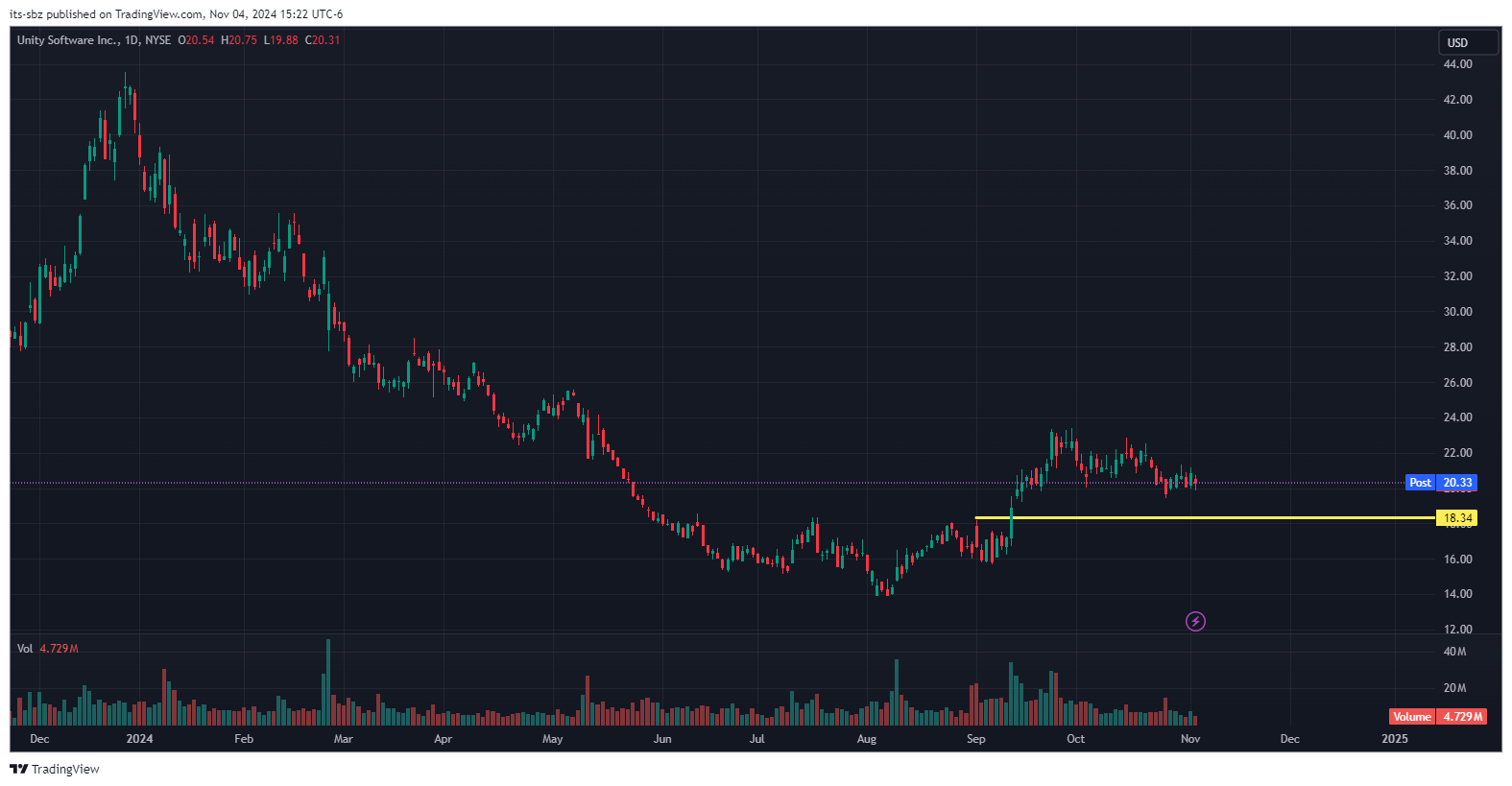
Unity Software Inc. is a real-time 3D tech, bringing top-tier tools to developers across gaming, AR/VR, architecture, automotive, and even film. Its core product, Unity, is a full-blown development ecosystem, offering developers powerful cross-platform functionality and real-time rendering capabilities that let them craft everything from mobile games to virtual showrooms. Here’s why Unity holds such sway in the industry and what that means for its financial outlook.
Why Unity’s Game Engine Dominates
Unity’s flagship product stands out in three critical ways:
- Cross-Platform Development Flexibility: Unity simplifies the heavy lifting of adapting content across multiple platforms. Whether it’s mobile, PC, console, VR, or AR, Unity lets developers build once and deploy almost anywhere—a major time-saver in a fragmented device landscape.
- Real-Time Rendering and Visual Fidelity: Unity’s advanced rendering engine brings high-definition visuals to life. This is especially impactful in industries beyond gaming, where real-time rendering is essential, like virtual training in automotive and simulations in architecture.
- Unity Asset Store: For developers, the Unity Asset Store is like a giant toybox of pre-built assets, including 3D models, scripts, sound effects, and more. It’s a time-saving godsend, lowering barriers for smaller studios or independent developers looking to produce high-quality work without massive budgets.
Unity’s Broader Impact and Industry Reach
While Unity started with a focus on games, it’s now a cornerstone tech provider for industries ranging from automotive to architecture and beyond. In automotive, companies use Unity for real-time vehicle simulations and virtual showrooms, while architects rely on it for virtual walkthroughs and immersive design visualizations. Unity’s impact is evident in Hollywood, too, where its real-time capabilities are used to create special effects and pre-visualization in film production. Unity is a major player in the broader digital transformation landscape.
Unity Software’s Technical Analysis
I am keeping a sharp eye on Unity’s price action, because I think the $13.90 low from August is a level that has all the hallmarks of a bottom that might actually stick this time. Since then, the stock has been clawing its way back, hitting $20.29 today.
$18.50 is that critical support zone. If Unity can stay above it, we’re talking about a solid foundation for an upside breakout. It’s a zone that keeps big players in the game; if it holds, $U has a shot at building momentum to move up.
Unity Software’s current market capitalization is $8.28 billion. To compare this to its competitors:
- Take-Two Interactive Software (TTWO) has a market cap of $28.36 billion.
- Roblox (RBLX) has a market cap of $27.27 billion.
